


and Carer




and Carer
Inside, you ’ll find:
Practical wellbeing
strategies, including the Five Ways to Wellbeing
Advice on supporting anxiety and school refusal
Mindfulness tips
Signposts to local services and crisis support
Supportingyoungpeople’swellbeingisasharedresponsibility.
Weareheretoworkinpartnershipwithyou—nofamilyshould facethesechallengesalone.
Ifyouhaveanyconcernsaboutyourchild’swellbeing,please donothesitatetocontacttheirProgressLeader.
MentalHealthandWellbeingLead
Theteenageyearsareatimeofrapidemotional,social,andphysicalchange.It’snormalforyoungpeopletohaveupsanddowns—but understandingthedifferencebetweentypicalteenagebehaviourandearlysignsofmentalhealthconcernsiskeytoofferingtheright supportattherighttime.
Anxiety
Persistentworry,fear,or nervousnessaboutsituationslike school,friendshipsorperformance.
Signstolookoutfor:
Avoidingcertainsituations(e.g. schoolorsocialevents)
Physicalsymptoms(e.g. headaches,stomachaches)
Panicattacksorconstant reassuranceseeking Troubleconcentratingor sleeping
Lowmoodordepression
Ongoingfeelingsofsadness, hopelessness,orlackofinterestin life.
Signstolookfor:
Withdrawalfromfriendsor activitiestheyusedtoenjoy
Lowenergyormotivation
Changesinappetiteorsleep
Negativeself-talkorfeelingsof worthlessness
Impactofsocialmedia
Signstolookoutfor:
Lowself-esteemorbodyimage concerns
Obsessivecheckingofphonesor socialplatforms
Upsetafterbeingonline(e.g. fromonlinedramaorbullying)
Difficultyswitchingoffortaking breaksfromscreens
PeerPressure
Thepressuretofitin,change behaviour,ortakepartinactivitiesto beacceptedbyothers.
Signstolookoutfor:
Suddenchangesinbehaviouror friendgroups
Risk-takingorout-ofcharacteractions
Seeminganxiousaboutsocial approvaloracceptance
Talkingaboutwantingto"fitin" ornotbeing“goodenough”
Signstolookoutfor:
Frequentcomplaintsofillness onschooldays
Distressorpanicinthemorning
Fallingattendanceorlateness
Isolationorfearof failure/socialsituationsat school
Wantingmoreprivacyorindependence
Moodswingsorfrustration
Sleepinginonweekends
Worryingaboutexamsorfriendships
Testingboundaries
Beinggluedtoaphone/socialmedia
Withdrawingcompletelyfromfamilyandfriends
Ongoingsadness,hopelessness,orfrequentoutbursts
Difficultysleepingorsleepingexcessively
Constantanxietyaffectingdailylife
Risk-takingthatendangerssafetyorwellbeing
Obsession,comparison,ordistressafteruse
1. Listen calmly 1. Listen calmly without without judgement judgement
2. Check 2. Check immediate immediate
Safety Safety
‘Is your child currently ‘Is your child currently safe?’ ‘Are they with you?’ safe?’ ‘Are they with you?’ 3. Advise 3. Advise immediate immediate support support services services
4. If in immediate 4. If in immediate danger: Call 999 or danger: Call 999 or take the child to take the child to A&E at Alder Hey A&E at Alder Hey or Ormskirk or Ormskirk Hospital Hospital
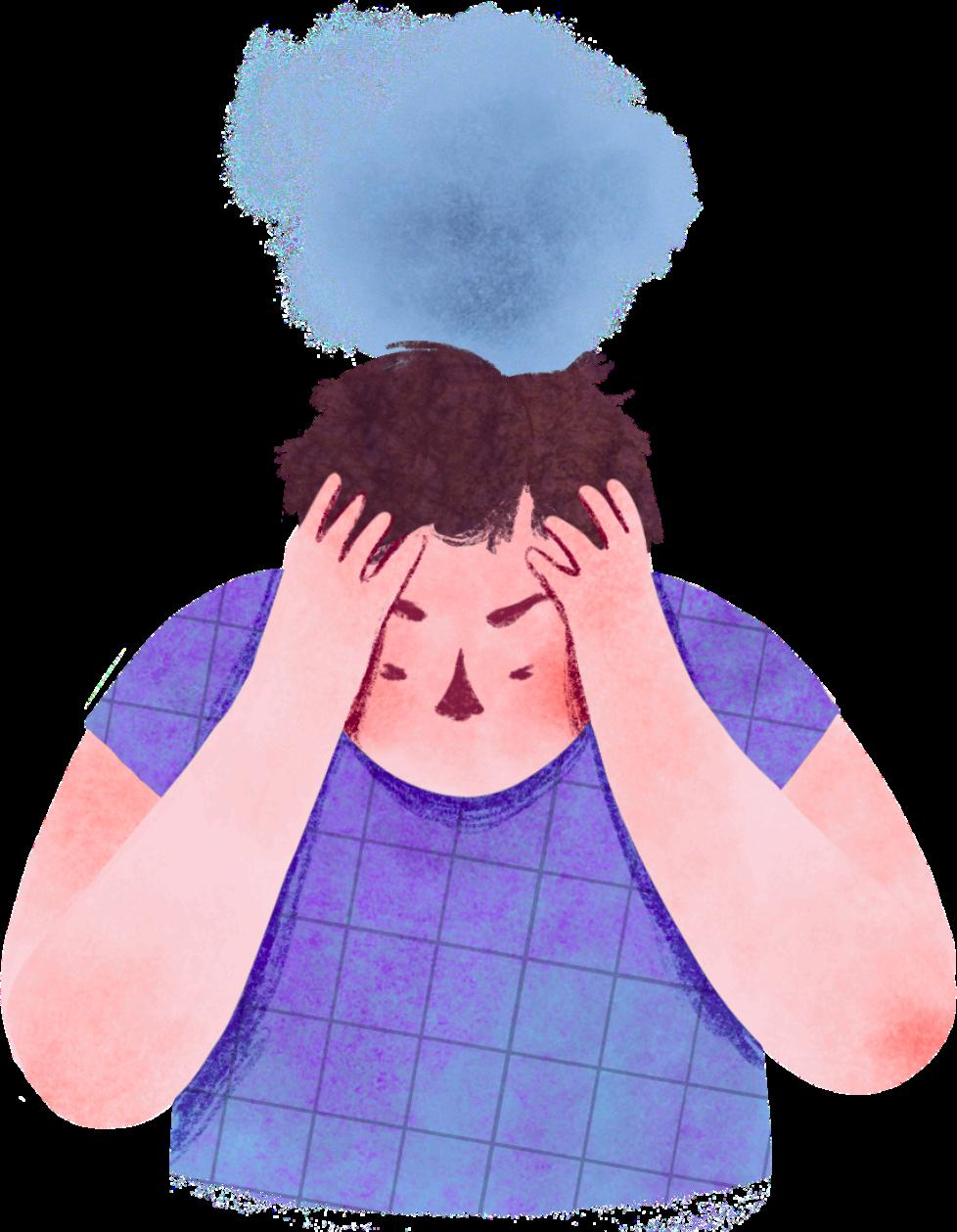
5. Log all 5. Log all information on information on CPOMS and notify CPOMS and notify designated DSL designated DSL
6. Follow up: offer 6. Follow up: offer same day or next same day or next day call back and day call back and ensure relevant ensure relevant staff are informed staff are informed
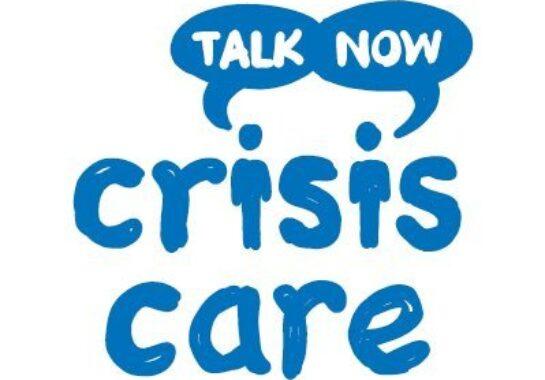


At Holy Family, we are committed to supporting every young person ’ s mental health and emotional wellbeing. Our Whole School Approach is our universal offer—a foundation of care, awareness, and support available to all students, every day.
This includes a wide range of strategies and activities such as:

Communications










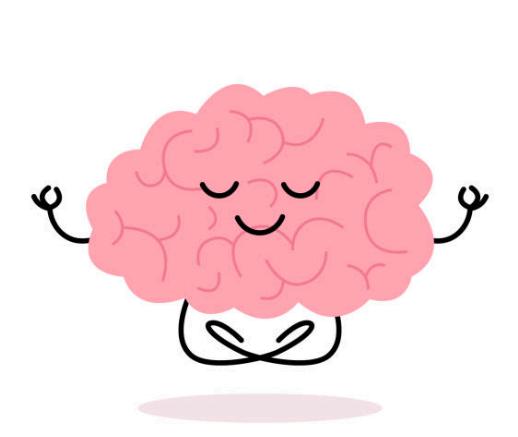
If concerns arise about a young person ’ s wellbeing, their Progress Leader may suggest starting the 30-Day Wellbeing Challenge. This is a first-response approach, offering simple, seasonal activities to help young people build resilience, manage stress, and look after their mental health. The challenge also helps open up conversations between young people, families, and staff, making it easier to check in and offer support.
Parents/carers and Progress Leaders should:
Encourage the young person to take part
Look out for whether they are engaging
Use the activities as check-in points for discussion
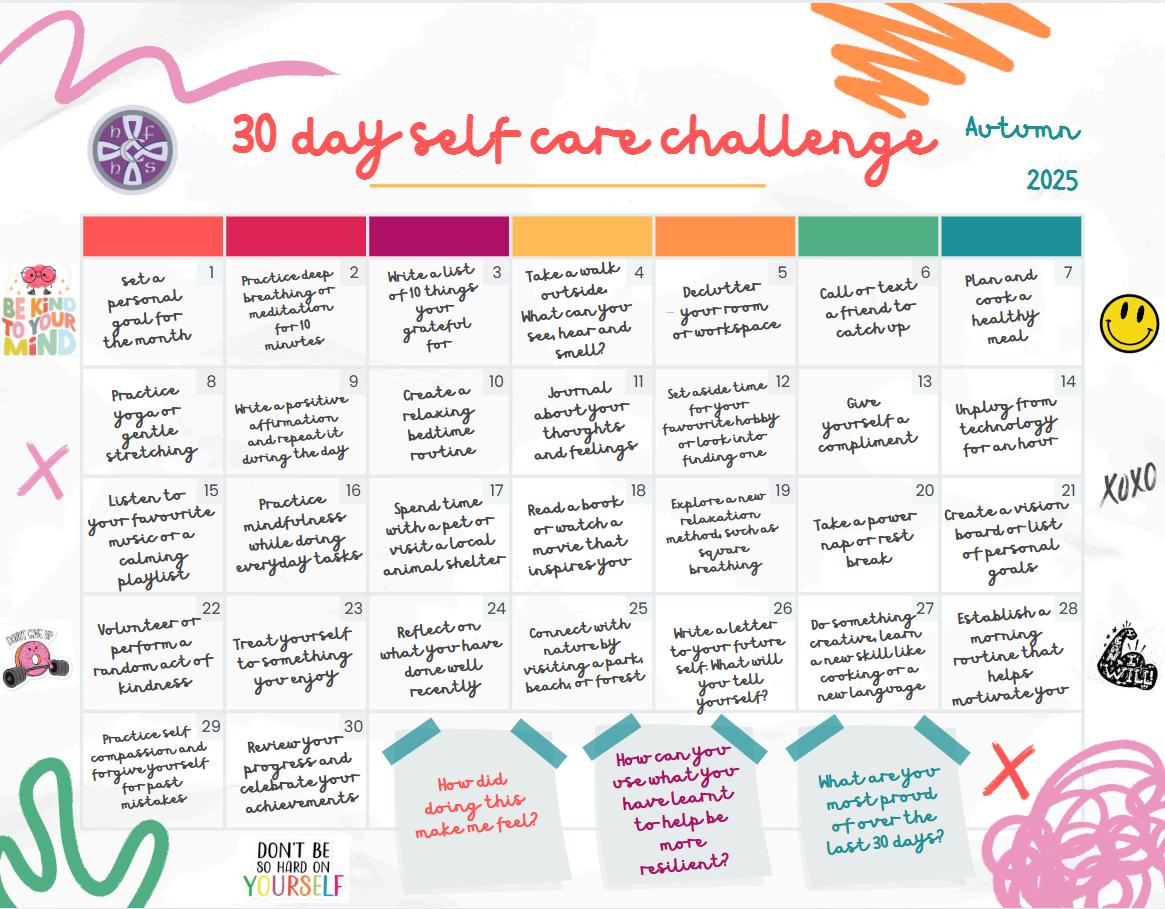
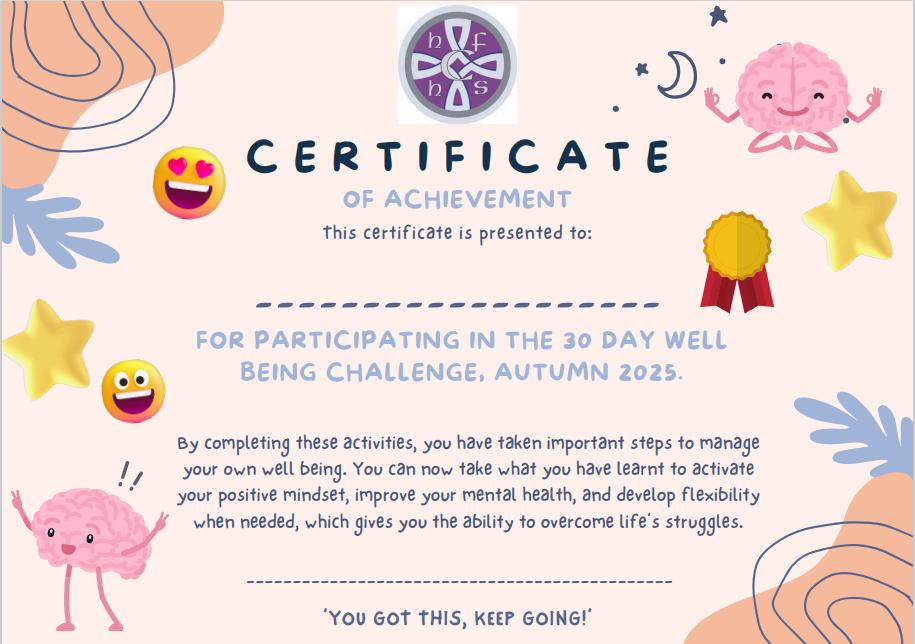
Once completed, the young person receive merits and a certificate, to praise their engagement. If concerns remain, a referral to the Inclusion Team may be made, and families may be signposted to further support or advised to contact their GP. This challenge is an important first step in supporting wellbeing and identifying when more help may be needed.
The NHS Five Ways to Wellbeing are simple, evidence-based actions—Connect, Be Active, Take Notice, Keep Learning, and Give—designed to improve mental health and help people feel more positive.
These small daily actions can make a big difference, especially when practiced together as a family. You don’t have to do them all every day. Even one small positive action each day can help build a more connected, resilient family.
Have a screen-free family dinner, play a board game, or check in with each other at the end of the day.
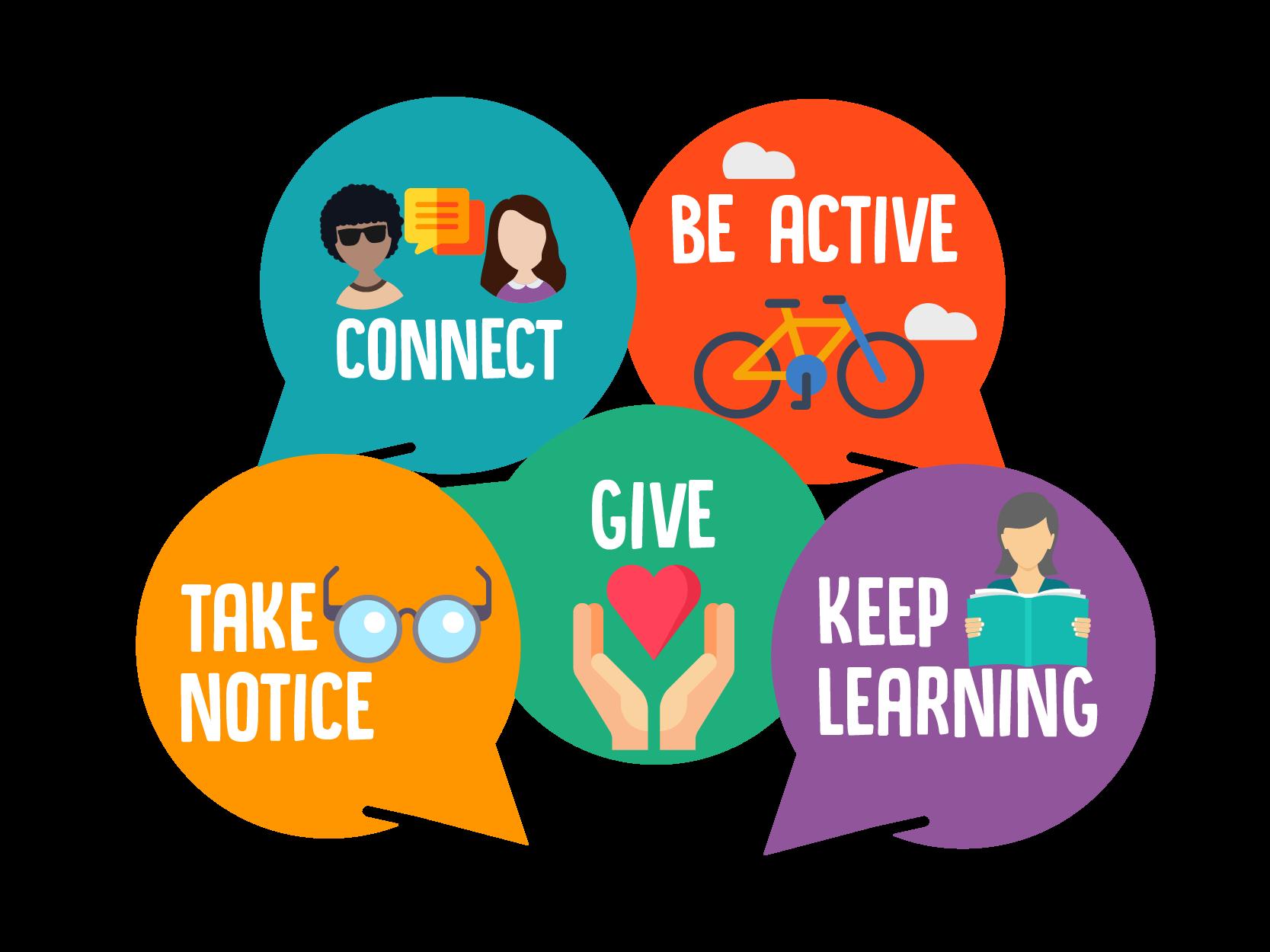
Go for a walk, bike ride, or try a dance video or yoga session together at home.
Try mindfulness as a family (e.g., 5 senses exercise), go for a walk and notice what you see, hear and feel, or start a gratitude jar.
Learn a new recipe, do a DIY project, or try a new skill together (e.g., sign language, origami, or trivia night).
Mindful activities are important because they reduce stress, enhance focus, improve emotional wellbeing, and promote self-awareness, helping individuals live more balanced, present, and fulfilling lives.

Traceafingeraroundyourhand whileinhalinganddownwhile exhaling,itcombinessensory stimulationwithdeepbreaths, helpingtocentreandcalmthe mind.
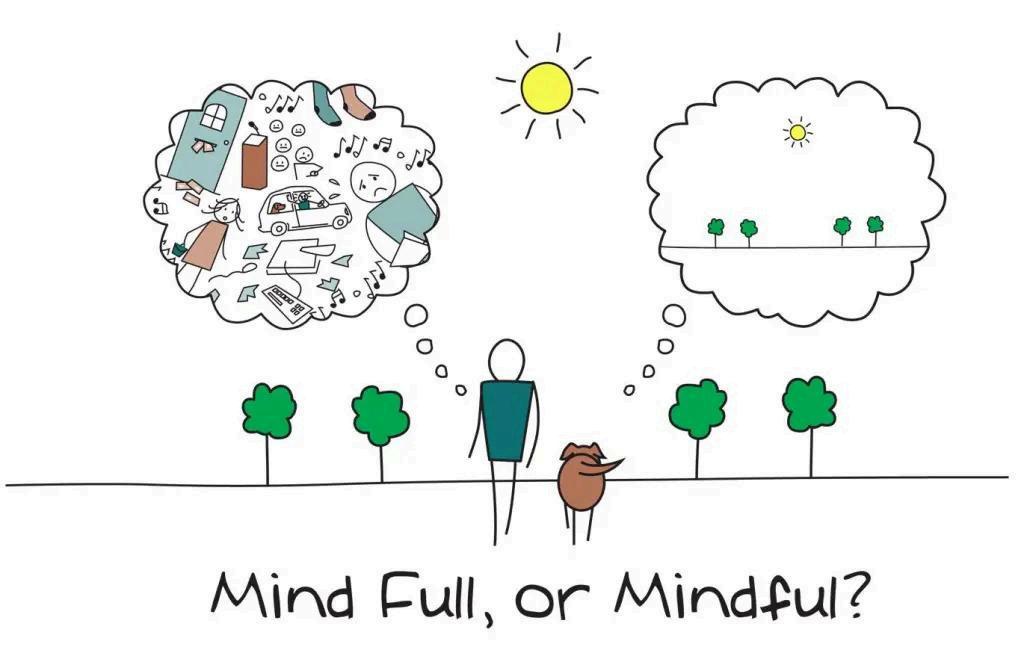
Mindfulwalkingisawayofnoticing what’sgoingonaroundyouwhile youtakeawalk.Insteadofracing towhereyou’regoing,youtake yourtimeandreallynoticewhat yousee,hearandfeel.
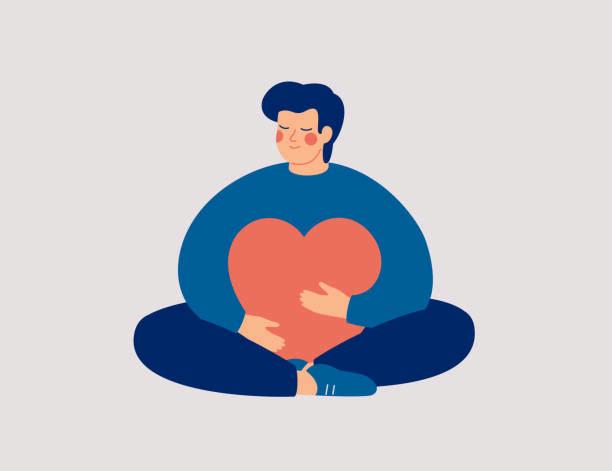
Thisisallaboutheightening yourawarenessofyourselfand yourbody.Through regular practice,youwillbecomemore attunedtoyouremotionaland physicalstates.
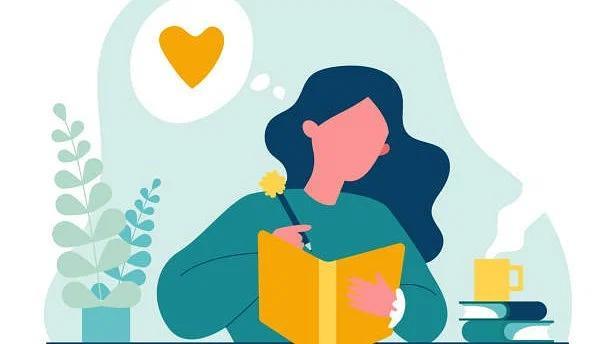
Havinga notebookwhereyou canjotdownyourfeelings, observations,orthingsyou’re gratefulfor.Physicallywriting downfeelingsandfearshelps youreflectandstaypresent.
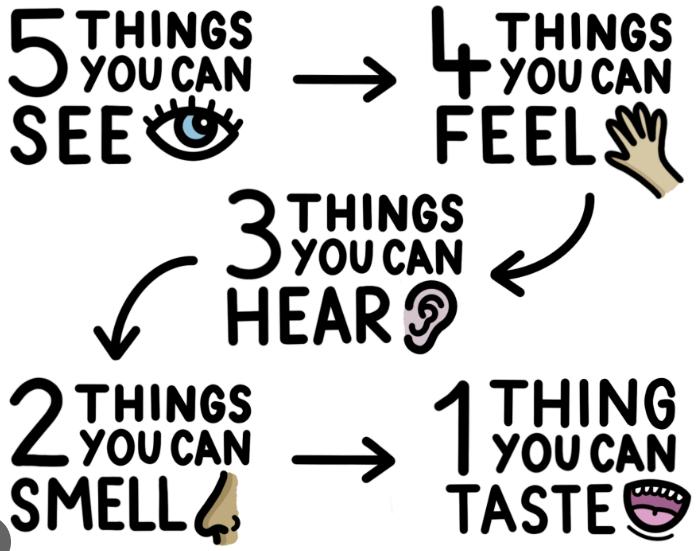
Groundingtechniquesareexercises thatmayhelpyourefocusonthe presentmomenttodistract yourselffromanxiousfeelings. Workingbackwardfrom5,useyour sensestolistthingsyounotice aroundyou.

Colouringincanbevery meditative. Focusonthe sensationofthecrayonor colouredpencilsonpaper,the coloursyou’reusing,andthejoy ofcreating!
Talk to your Child: understand their specific fears
Identify triggers: common triggers include separation, academic pressure, social issues or rout ne changes.
Create a stable morning routine
Use a visual schedule: checklists wi l help them anticipate their day
Reward Systems: reward attendance and participat on.
Praise their efforts, not just their successes
Step by Step: start with short school visits and gradually increase time
Visit the Schoo and meet the teachers before the year starts..
Organise: Prepare uniform lunch and school bag the night before.
Re axing bedtime routine: ensure a calming bedtime routine for a good s eep
Model ca mness: stay positive and calm
Positive anguage: emphas se the aspects of school that interest the young person /
Communicate with staff: regularly talk to AP Lead and Inc usion Staff
Help develop an individualised plan alongside the school.
Breathing exercises: teach simp e breathing techniques to calm them and get ready for learning
Prob em solving skills: help them to role play or discuss scenarios, so they fee in control and prepared
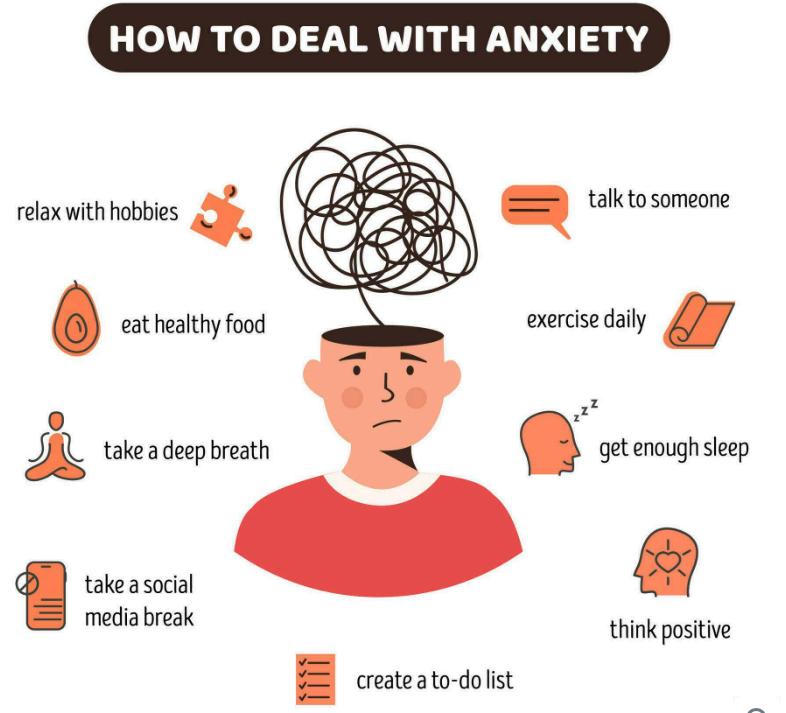
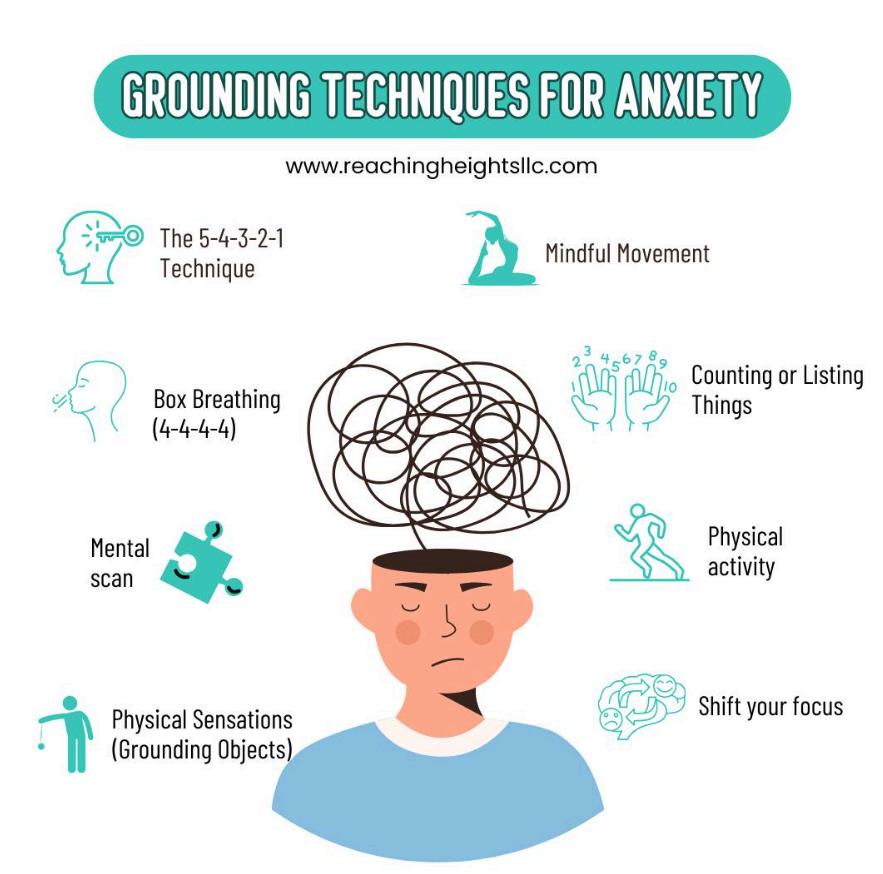
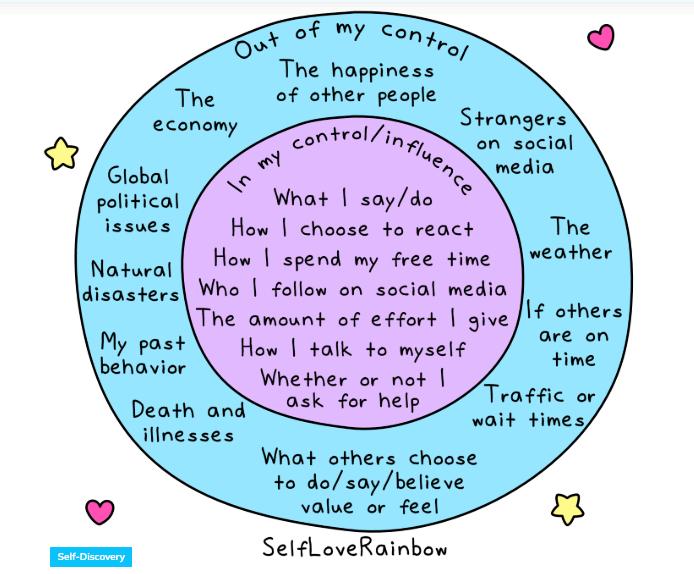

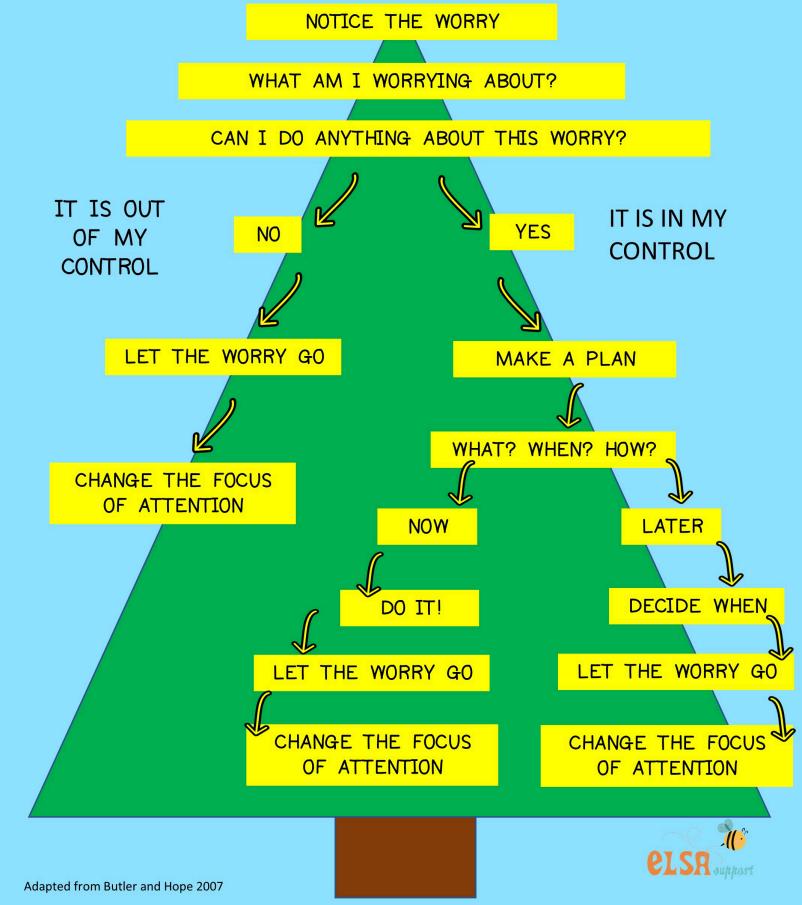


❝TheUKhasoneofthehighestratesofselfharm inEuropeat400per100’000population❞
NationalSelfHarmForum
(https://www.nshn.co.uk/index.html)aimstosupport
individualswhoselfharmtoreduceemotionaldistressand improvetheirqualityoflife.Itprovidessupportand information forfamilyandcarers.
Commonmisconceptions: Selfharmisattemptedsuicide
Allpeoplewhoselfharmaresuicidal
Selfharmisoftenseenasacryforhelp,aploytogain attentionorasmanipulation
Themoreserioustheinjury,themoreserioustheproblem
Theymustlikethepain
Advice for Family, Friends and Teachers

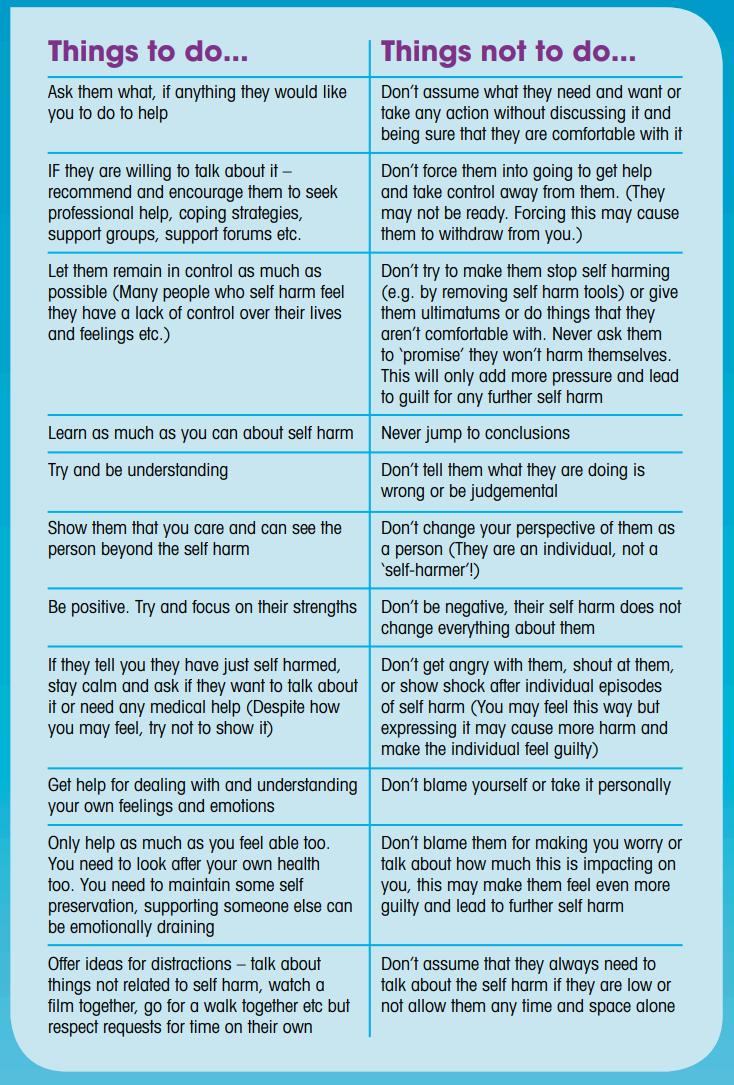
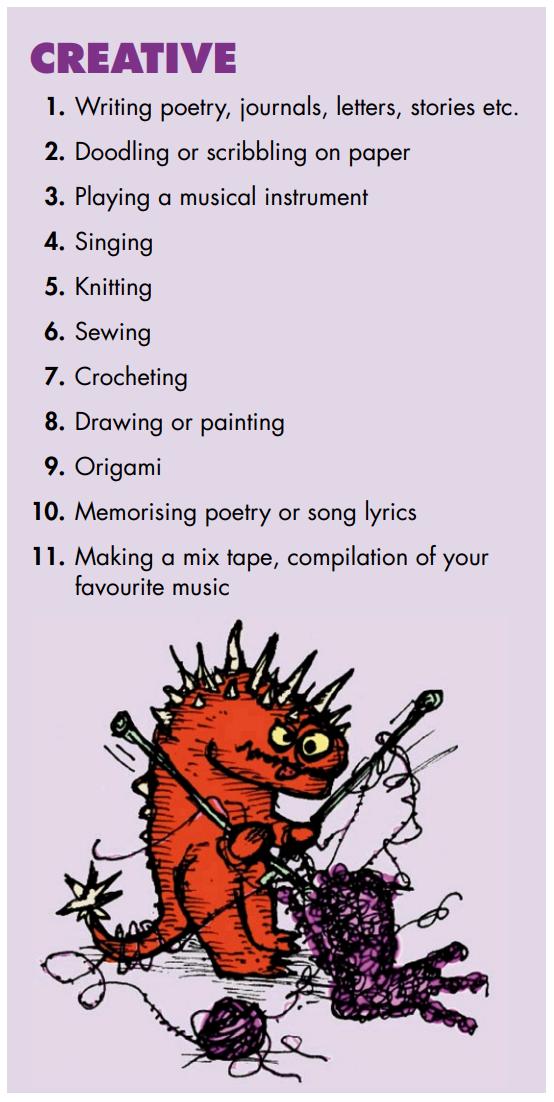



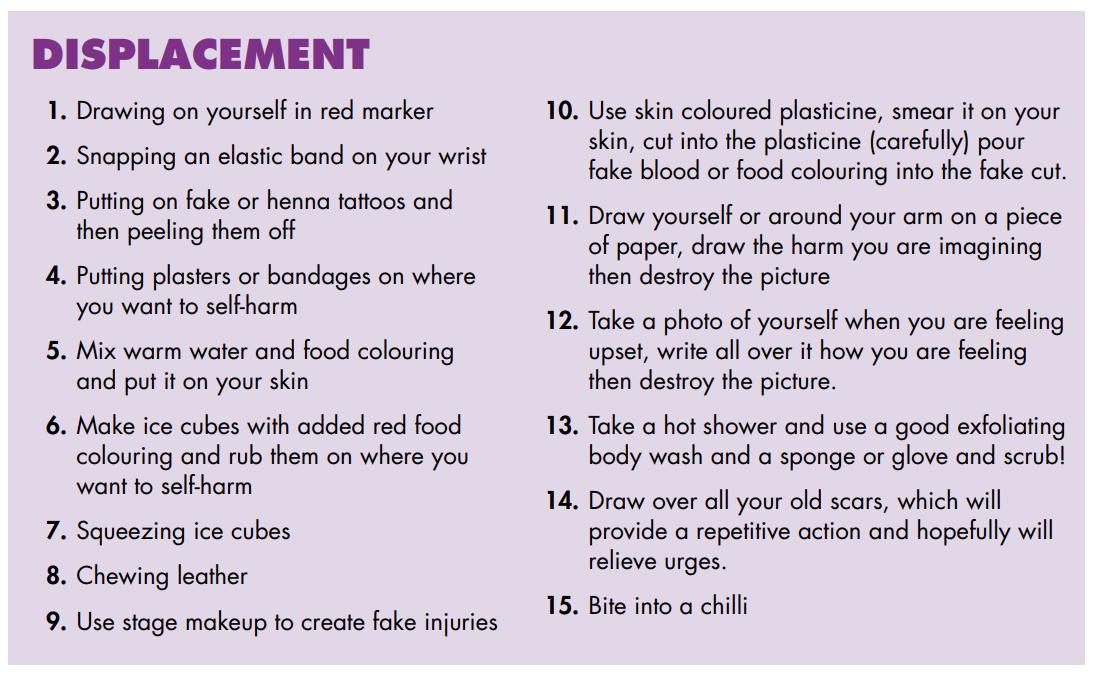


Suicideisthemaincauseofdeathinyoungpeopleundertheageof35intheUK.Over200 teenagersarelosttosuicideeveryyear.


Researchshowsthatwithappropriate earlyinterventionandsupport,suicide byyoungpeoplecanbeprevented.
By usingthe MYASERIOUSmodel,we can reducethestigmaaroundsuicide andrespondintherightway.

“Areyouthinkingabouttakingyourownlife?”
“Areyouthinkingaboutsuicide?” “Areyouhavingsuicidalthoughts?”
“Areyouwantingtodie?”
Iftheysayyes...
P=DotheyhaveaPLAN?
A=DotheyhaveACCESStolethalmeans?

I=HowINTENSEaretheirsuicidalfeelings?
N=NOpreviousattemptsorexposure?

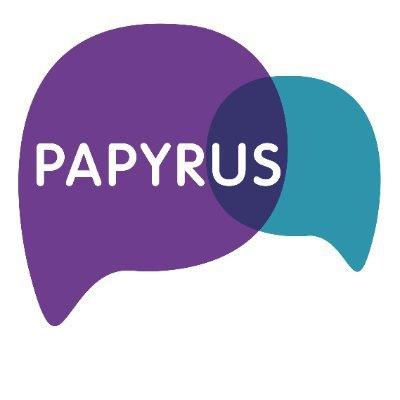


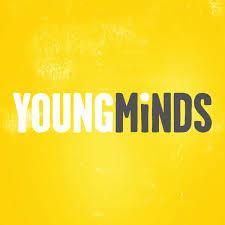
Usingthelink,signupforfree,anonymous1-2-1supportusinglivechatormessenger.Setupanaccountin only8steps:https://www.kooth.com/signup/available-in-many-areas


Realpeople,notbots: theprofessionalsyouspeakwithinour chatservicearerealpeoplewhowant tolistentoyou.
Asafespacetotalk: theKoothchatserviceisasafespace forsupportaccreditedbytheBritish AssociationforCounsellingand Psychology(BACP).

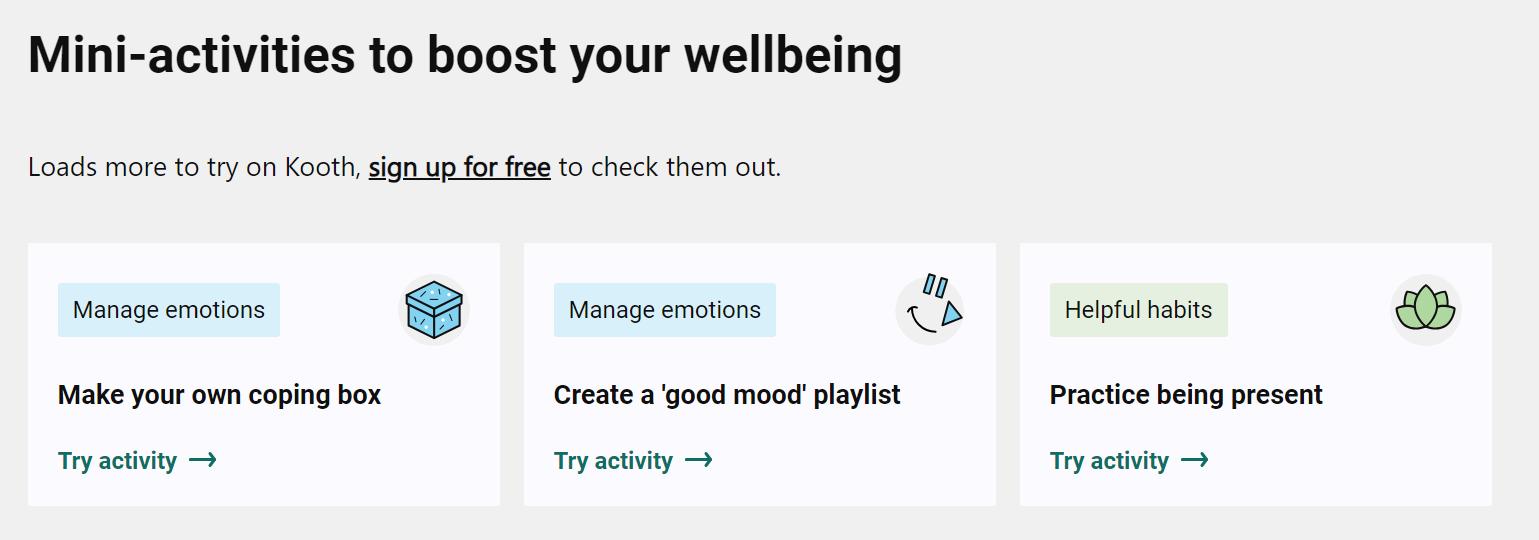

Venusoperatesitsfrontlinesupportworkacrosstwodifferentcentres.Alloftheirworksupportsevidence-based,traumainformedpracticestoprovideasafeandtrustingenvironment.Servicesaretailoredtothespecificneedsofthoseindividualsthey support.TheyworkwithSefton’sACESTeam,recognisingandworkingwithACESandPACESso traumacanbeacknowledgeand workedthrough.
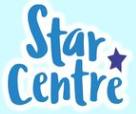
Young people can drop in Mondays and Wednesdays from 3.007.00pm for information, support and advice.
Parent's support drop is on Mondays from 1pm - 3pm LGBTQ drop-in support group is on Tuesdays from 5.15pm6.45pm.

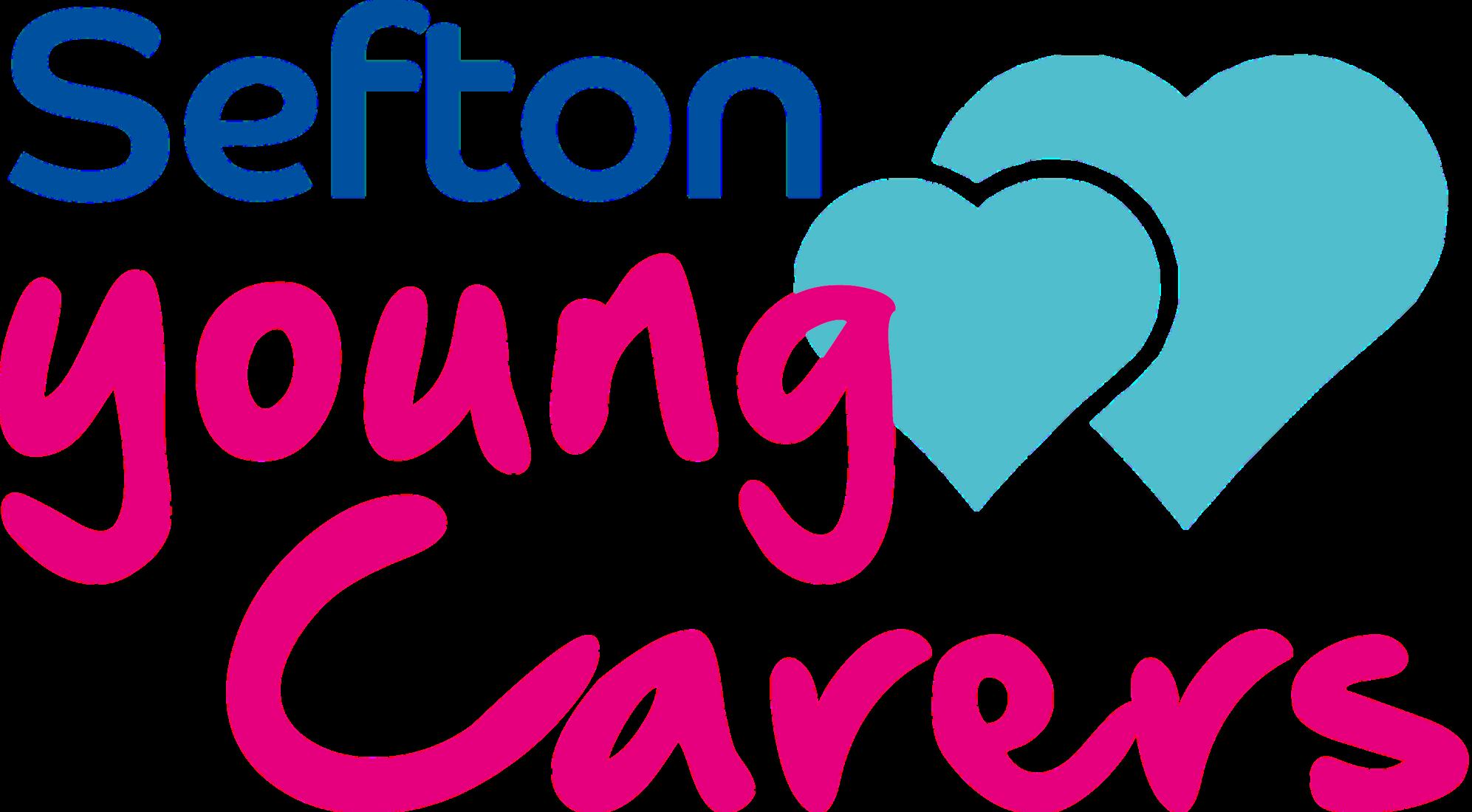
TheSeftonCarersCentreYoungCarerssupportserviceisasmalland ambitiousteamthatisdedicatedtoempoweringourborough’syoungcarers andyoungadultcarersandsupportingtheirfutureaspirations.Weworkwith youngcarersdirectlyandforyoungcarerschampioningtheircause.
YoungCarersare childrenandyoungpeople whohelptolookaftersomeonelivingwitha healthinequalitywhoneedstheirsupport. Theymightbethesolecarerorthemain carer,ortheycouldbepartofateamthat helpstosupportsomeone.
Thepersontheyprovidecareforisafriendor familymemberwho,duetoillness,disability, amentalhealthproblemorasubstance misuseissue,finditdifficulttocopewithout theyoungcarer’ssupport.
YoungCarerswhoareregisteredare supported accordingtotheirwishesand needs.Someofthesupportavalibleis: Checkinviamessages totheyoung people
Shareregularupdatesaboutthe services
Supportwith1-2-1sessionsinschoolto helpthemdealwithchallengesthatmay arise
Accesstoweeklydropingroupsin CrosbyandSouthport
Accesstoamixtureofempowerment supportandfunbreaksfromcaring Respiteactivitiesintheschoolholidays
Istheyoungpersonagedbetween5and 17?
Doestheyoungpersonand/ortheperson theycareforliveinSefton?
Doestheyoungpersonhavecaring responsibilities?
Hastheyoungpersonbeenspokenwith aboutbeingreferredasayoungcarer?
Hasparentalconsentbeengivenforthe referraltobemade?
Doesthepersoninneedofcarehavean illness, adisability,amentalhealth problemorasubstancemisuseissue?
Thereferralformcanbefoundontheirwebsite:https://sefton-carers.org.uk/young-carers/
Weknowthatparentingateenagerisnevereasy—anditcanfeelevenharderwhenyou'refacingyourownmentalhealthchallengesor financialpressures.Pleaseknowthatyouarenotalone.Wearehereforbothyouandyourchild.
Yourwellbeingmatters.Itis notselfishtoprioritiseyour mentalhealth.UsetheNHS’s5 waystowellbeingtohelp.Even smallactsliketakingawalk, talkingtosomeoneyoutrust, orsimplypausingtorefillyour cup.
NHSMerseyCareoffer urgent24/7mentalhealth supportforfree.
Call08001456570ifyou areage16andoverandlive inLiverpoolorSefton.
If you need someone to talk to, they listen
ChangeGrowLiveSefton, providesadultsand tfamiliessupportthrough Cheirjourneytorecovery. all01512039755for advice.
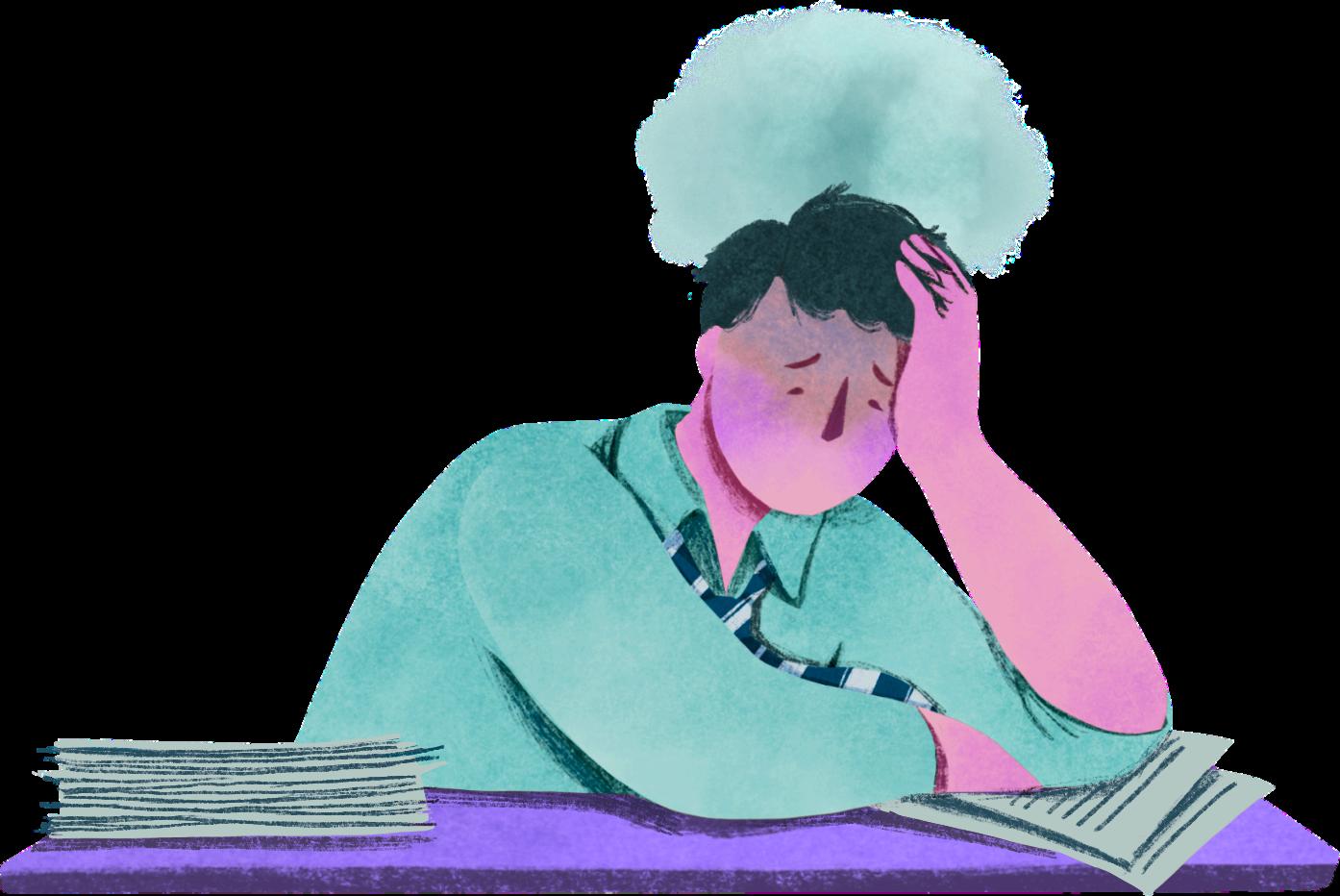
TheSamaritanswon’t udgeortellyouwhattodo. Available24/7,365daysa year.Call116123,email jo@samaritans.orgorvisit theirwebsite.

CitizensAdviceSefton,provides knowledgeforthoseindifficult circumstances.Theyoffer tconfidentialadviceonline,over hephoneandinpersonforfree. Adviceline08082787841MonFri9.30am-4.30pm.
Trynottocompare yourselftoothers.Every family’sjourneyis different.Giveyourself compassionyouwouldoffer afriend.
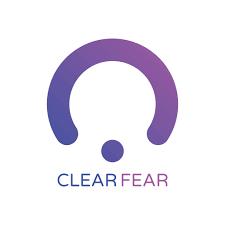







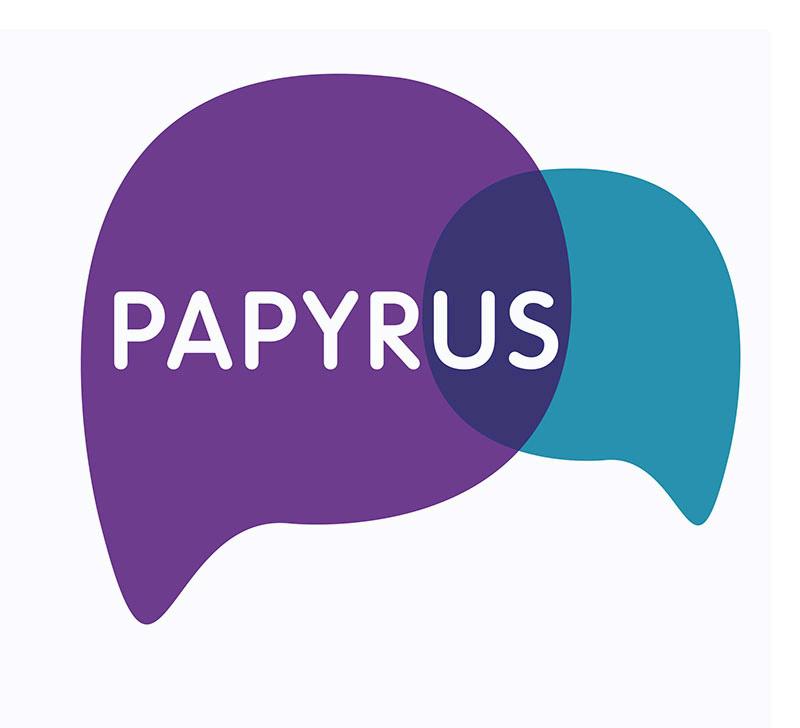




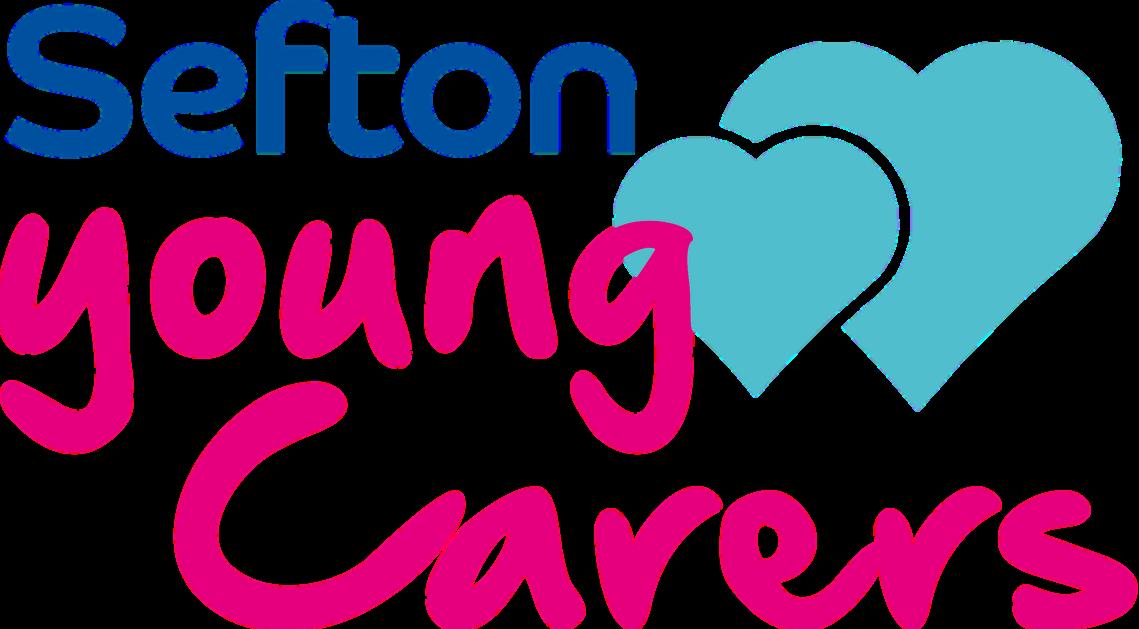

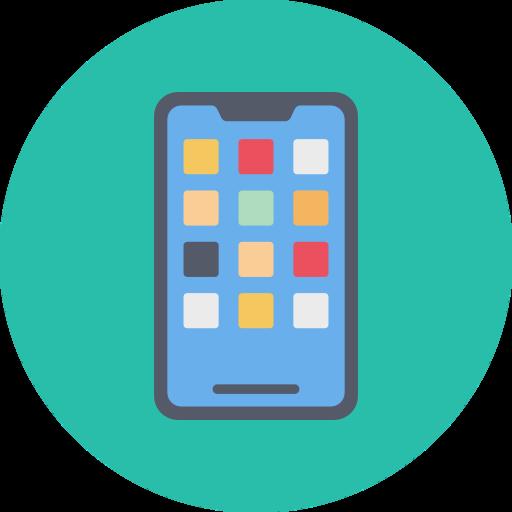



An app to help families and friends support young people with their mental health.
Combined Minds
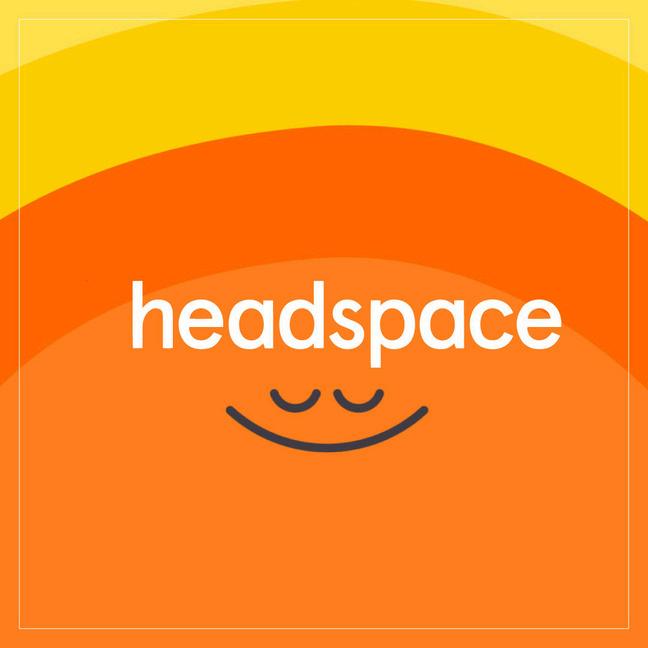
Calm Fear Anxiety Support App 11-19 year olds

Calm Harm Self Harm Support App 13 years+

The NHS Couch to 5K app helps you track your running progress and gives you a choice of 5 coaches to motivate you.



Couch to 5k

A free app with advice managing anxiety and relaxation methods.

An app that provides easy recipes to prepare tasty and healthier meals.

A free app that provides help around self-harm and suicidal thoughts.
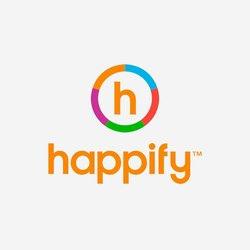
An app that uses science based activities and games.

A free self help app for anxiety. Helps you to record reflections.
An app that provides mindfulness mediations and support for sleep and relaxation. Has free 7 day trial and some content is free. SAM
A free app for managing the time you spend worrying distrACT

An app that provides mindfulness mediations and sleep support. Has a 2 week trial and some content is free. Happify
Provides free daily mindfulness meditations.
Smiling Mind













SEND based activity and holiday programme for those with additional needs

Bereavement support for young people 4-18 years

Assessment and intervention for young people up to age of 18.

Early intervention social care support for families

Link for parent referral via telephone. School to refer using form.
You are not alone, we are here for you

Gives advice, counselling and aims to increase their social intereactions

Emotional/ practical support & guidance for young people and families

Drug and alcohol support, offers advice, online chat service and 1-2-1 and group sessions

Trauma informed mental health and wellbeing services for women and teenage girls

Therapeutic wellbeing service, incl 1-2-1 & group counselling
for more mental health and wellbeing advice, visit our school website, https://holyfamilyhighschool.co.uk/our-approach/welfare-mental-health/
